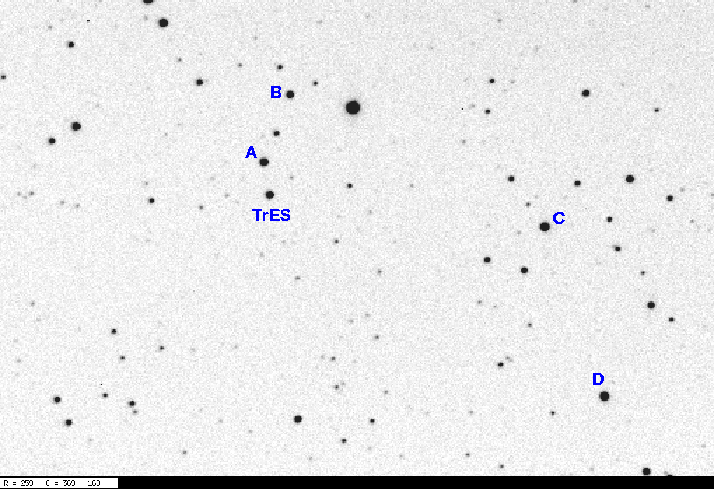
On the night of Oct 02/Oct 03, 2004 EDT, I used the RIT Observatory's 12-inch Meade telescope and SBIG ST8 CCD camera to observe the star TrES-1, which is known to have a planet which causes transits.
The plan:
Notes from the night
Here's a chart of the field of TrES-1 in V-band. The field is about 20 arcminutes wide. Click on the picture for a larger version.
I measured the instrumental magnitude of each star with aperture photometry, using a radius of 5 pixels = 9.3 arcseconds, and sky defined by an annulus around each star. Following the procedures outlined by Kent Honeycutt's article on inhomogeneous ensemble photometry, I used all stars available in each image to define a reference frame, and measured each star against this frame.
Below are graphs of the scatter in differential magnitude versus magnitude, in both filters. Note that the brightest stars included in the solution may be slightly saturated. I made a series of preliminary solutions and discarded stars which had large scatter due to close companions, or due to their position near the edge of the frame, etc.
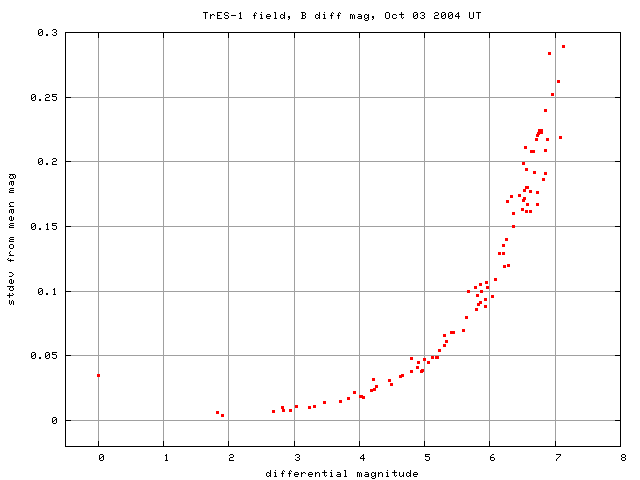
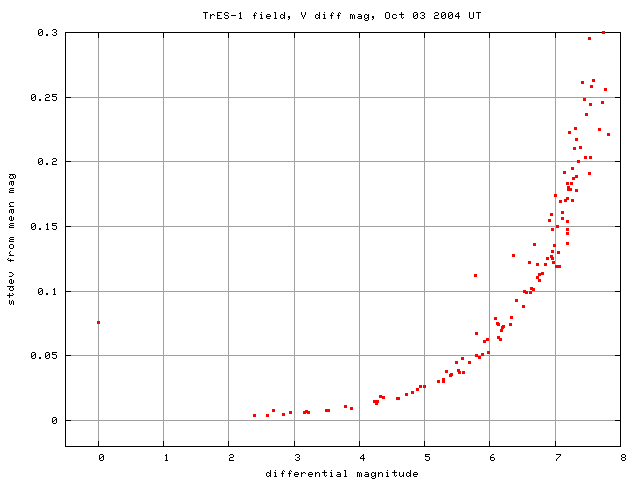
TrES-1 has differential mag 2.7 in B-band, 3.2 in V-band; it does not stand out above the other stars in the field. The brightest star has a large scatter from the mean because its saturated the detector slightly. I excluded that star when making the ensemble solution. The brightest unsaturated stars have formal scatter under 0.010 mag.
Light curves for selected stars in the field are shown below. TrES-1 is in green.
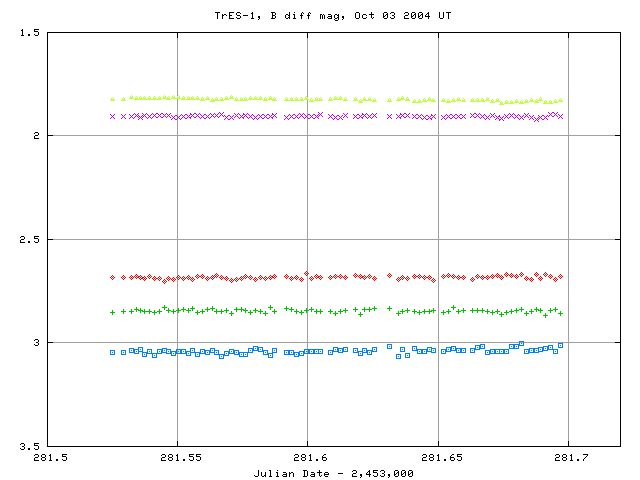
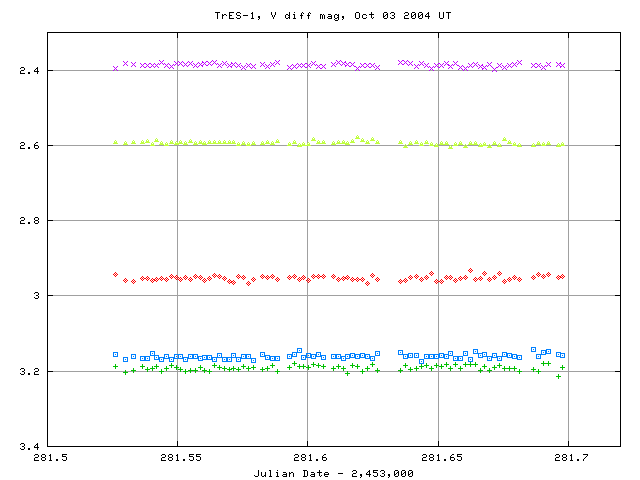
I was thinking that perhaps TrES-1 might show gradual, small variations due to spots on its surface. This single run of 4 hours isn't enough to make any definitive statements, of course; I'll need several weeks of measurements. But the star certainly does look as constant as the others in the field. For a quantitative statement, here are values for scatter around mean for the brightest stars in the field:
in B-band in V-band
mean stdev mean stdev
---------------- ----------------
28 0.000 0.035 32 0.000 0.076
97 1.819 0.006 74 2.387 0.004
64 1.899 0.004 113 2.594 0.004
37 2.677 0.007 7 2.690 0.008
32 2.820 0.010 36 2.846 0.005
TrES-1 50 2.839 0.008 43 2.953 0.006
43 2.934 0.008 29 3.161 0.006
25 3.034 0.011 58 3.191 0.007 TrES-1
79 3.231 0.010 28 3.221 0.006
I've made a table of the measurements themselves, with three different flavors of time. The magnitudes from the ensemble solution has been shifted so that star "A" in my chart, Tycho 2652-152-1, has values B=12.989 V=11.794, matching its Tycho-2 entries. I have made no color corrections.
Last modified 10/03/2004 by MWR.